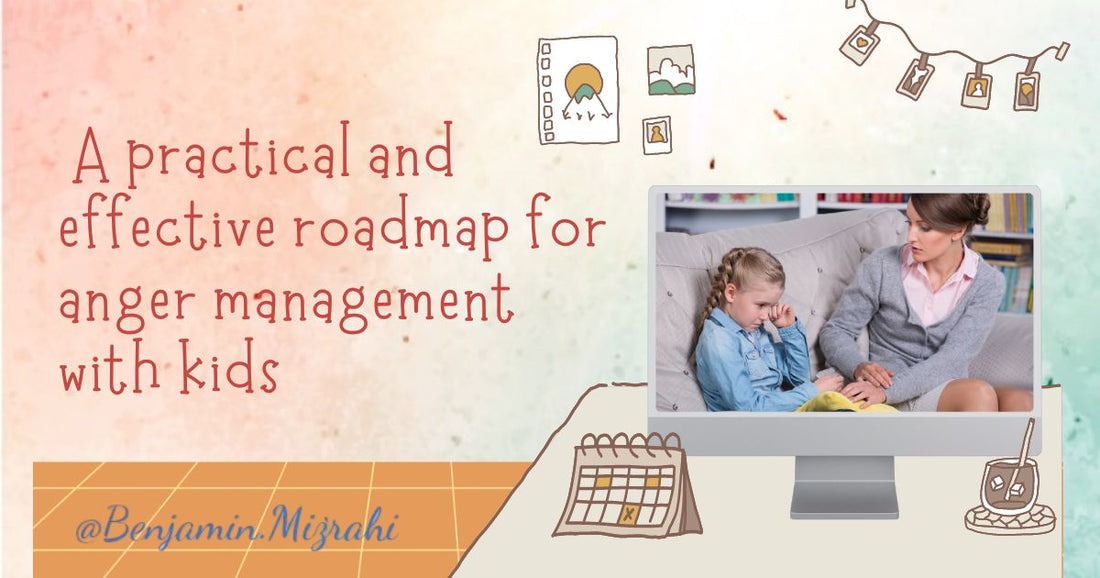
A Practical and Effective Roadmap For Anger Management with Kids
Share
Supporting your child through the storm of their anger and exploring through trial and error, which helps them to regain emotional stability, is called co-regulation and is an essential part of raising an emotionally intelligent child who can manage their anger healthily in adulthood.
Normalize all emotions (including anger)
Teaching your child that anger is their body’s natural way of alerting them that something isn’t quite right, will help this intense emotion feel less overwhelming.
Be proactive, not reactive.
Provide frequent and ongoing opportunities to talk about emotions and coping skills for anger during normal everyday life, so your child has a chance to commit these life-changing skills to memory. Team up to make a plan for how to calm down when angry before anger strikes.
Give them a lifeline
You are your child’s guidepost and they’re counting on you to stay in control when they can’t. If you’re not ready to hold yourself accountable when emotions are running high, you shouldn’t expect your child to.
Explore their triggers
Helping your child reflect on what things usually happen before ‘their anger comes out’ is a powerful way to cultivate self-awareness and become better prepared for when tricky situations reoccur in the future.
Teach emotions vocabulary
When you give your child a wide range of emotions vocabulary, you’re giving them a vehicle to better understand what they’re experiencing and also how to express it appropriately.
Teach through modeling
The most powerful way to teach your child how to deal with anger in a positive way is to model and practice healthy coping skills right in front of them.
Body warning signs
If your child can pay attention to their body's physiological signs of anger, they can implement calming tools and strategies before their anger gets the best of them.
Use visuals
Due to what’s happening in their brain during emotional upheaval it’s much easier for your child to visually process information when they’re upset than processing what you say auditorily.
